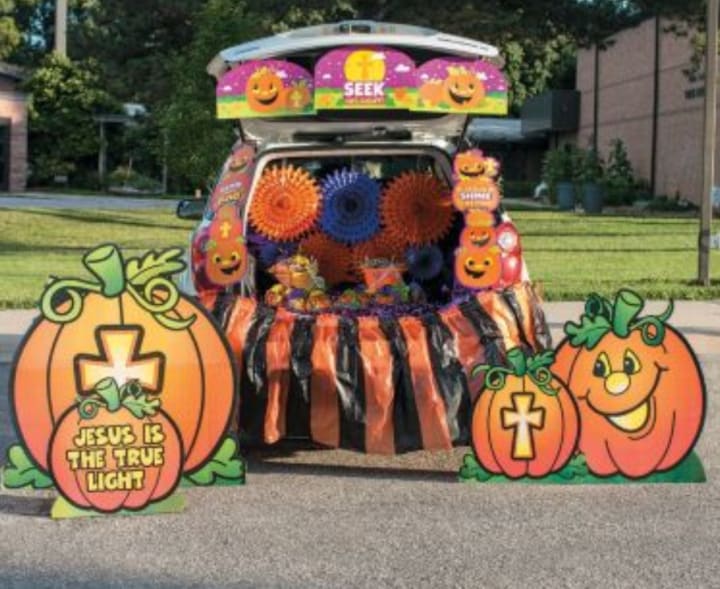Trunk or Treat for Halloween started in churches
The secular world is enjoying a method of observing Halloween that was created to do something different

Halloween has evolved in many ways
In decades past children dressed up for Halloween and knocked on doors in their neighborhoods. When someone answered they shouted "Trick or treat." Today you rarely see children going door to door thanks to COVID and also out of concern for safety. In our modern culture Trunk or Treat is popular and just like Christmas and Easter, it began in church.
During the late 1990s, a church I attended had a Hallelujah night to deter children from participating in Halloween. There were games and snacks and the kids really did not like it. Many complained that they would have received more candy if they had been allowed to go trick or treating. A few years later I began noticing other churches advertising Hallelujah night or a harvest festival.
The point was not just to get the children off the streets but to emphasize the gospel of Jesus Christ. Over the decades this changed to churches hosting Trunk or Treat where kids could show up at a church parking lot and receive candy from the trunk of vehicles. As mentioned earlier the secular world has taken over this idea and is finding unique ways and places for children to get Halloween candy. The only difference is they do so without mentioning the gospel.

Combining religion and secular
This back and forth between the world of faith and secular has been going on for quite some time. Christmas began as a way to get people to stop practicing the celebration of the Winter Solstice and focus on the birth of Jesus. Easter came about a way to interfere with those who observed the Spring Equinox and place the emphasis on the Ressurection of Christ.
Today some Christians want nothing to do with Christmas and Easter because some of the practices that churches observe are considered pagan. Holly, mistletoe, yule logs, and wreaths as well as Easter eggs came from the very traditions that were considered pagan. Likewise, Halloween came from the Celtics and Druids putting out food on the night before All Hallows Day (November 1) so that the dead they believed roamed the earth would not play tricks on them. Some people wore masks so that the spirits would think they were just like them and not among the land of the living.

Blurred Lines
This All Hallows Eve tradition turned into Halloween where children say "Trick or Treat" implying that if you did not give a treat a trick would be played on you. For centuries all children took part in Halloween and some churches hosted parties in their basements and fellowship halls and children wore their costumes and or masks. In recent decades when many churches deemed Halloween evil and the devil's night they took the tradition and had children dress up as Bible characters.
Some congregations still do this but most of those who participate have Trunk or Treat as do other non-religious organizations. I have heard people say Halloween is harmless fun and that they are not participating in evil. This is the same way that those who are not Christian or do not believe in Jesus or any Supreme Being enjoy the gift-giving aspects of Christmas and Easter without any religious connotation.
The secular and religious communities borrowing from each other has been going on for centuries and will probably continue until the end of time.People who grew up going Trick or Treat are saddened that this Halloween tradition is no more but it's a sign of the times. It also shows that nothing remains the same and everything at some point changes.
About the Creator
Cheryl E Preston
Cheryl is a widow who enjoys writing about current events, soap spoilers and baby boomer nostalgia. Tips are greatly appreciated.






Comments
There are no comments for this story
Be the first to respond and start the conversation.